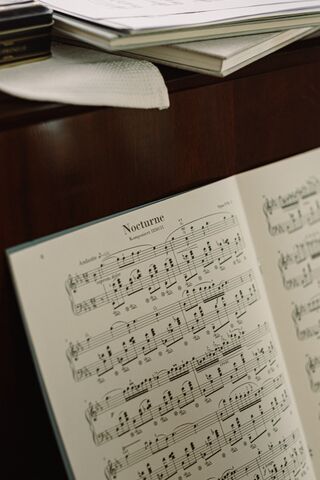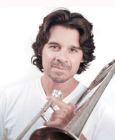Memory
How Poetry Sets the Tone for the Music Lesson
Reading poetry at the the music lesson balances technique and artistry.
Posted March 26, 2022 Reviewed by Lybi Ma
Key points
- The beneficial effects of reading poetry in a music lesson.
- Poetry and music are connotative experiences. Reading poetry sets the tone for artistic music study.
- Study of musical technique is a means to a poetic end, not an end in itself.

As a young conservatory student in 1993, I was talking with a classmate. He told me that his teacher, a prominent trumpet player in the New York Philharmonic, would begin each weekly lesson by having the student read aloud a poem. At the time I was struck by the uniqueness of this idea, turned on more by its novelty than its substance. I had teachers who discussed literature and art, even films, but reading poetry as an entrance into the music lesson was a new idea to me.
In his 1942 text on poetry, The Necessary Angel, Wallace Stevens discusses the idea that different epochs are dominated by either denotative or connotative language. In the history of intellectual history, we often discuss this in terms of classicism versus romanticism. C.P. Snow described a similar idea in The Two Cultures; the natural sciences and the humanities. The idea here is that we find a dominant way of thinking in any given period of culture, a swinging between realism and nominalism.
D.T. Suzuki, in an essay published in Erich Fromm’s Zen Buddhism and Psychoanalysis, described a similar difference between Eastern and Western science. Whereas Western science dissects, reduces, and destroys to understand, Eastern science meditates on its object of interest. This is the distinction of denotative and connotative language described by Wallace. The Zen Buddhist scientist writes a poem that conjures a connotative experience of the flower, whereas a Western scientist reduces the flower with a scalpel and microscope to its cellular level.
Martin Heidegger might be the best-known proponent of the connotative method of Western thinkers. In his text, Poetry, Language, Thought, he describes how dwelling upon an experience is different from thinking about some thing. We get somewhere different from dwelling, from the experience of a phenomenon, that can only be expressed through connotative, poetic language.
What then of music and poetry? How does reading a poem set the tone for music-making, let alone a music lesson? Music is connotative in its nature. Tones, rhythm, tempi (time), and harmony function as poetry. The technical study of an instrument is necessarily a denotative act; an act of technique. We learn and practice articulation, intervals, scales, harmony in a very mechanized way. This ability is essential to music-making and must be mastered. However, the preoccupation with technique at the expense of expression is similar to the preoccupation with the denotative over the connotative as expressed by Wallace, or the limitations of the ontic over the ontological, as expressed by Heidegger.
At the music lesson, especially in the earliest years, the focus is on the rudiments, the grammar, or the techniques of the craft. By reading poetry at the beginning of the lesson there is a reminder that these techniques are a means and not the end goal of music-making. The act of dwelling in connotative language is similar to the act of dwelling in free improvisation, or playing a piece from memory with disregard to technical accuracy.
Somewhere in New York City in the early 1990s, there was a trumpet player who was planting seeds within an entire generation of musicians, disseminating what would inevitably become a field of wildflowers.


